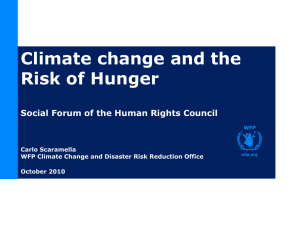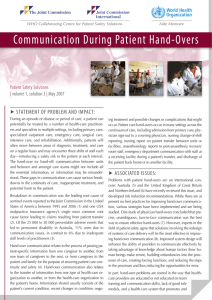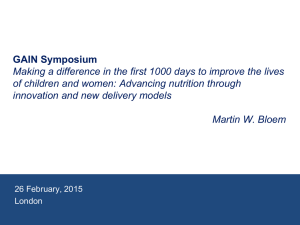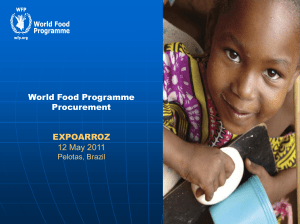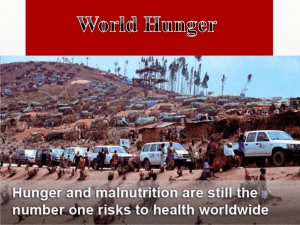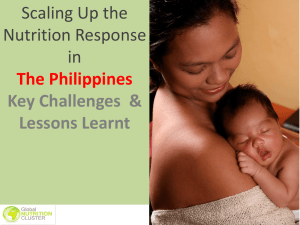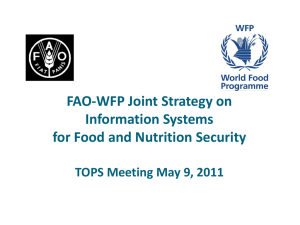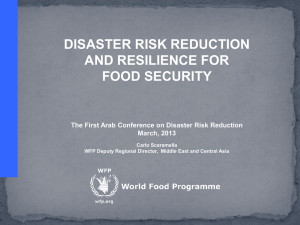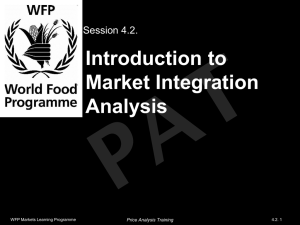WFP/EB - Food and Agriculture Organization of the United Nations
advertisement
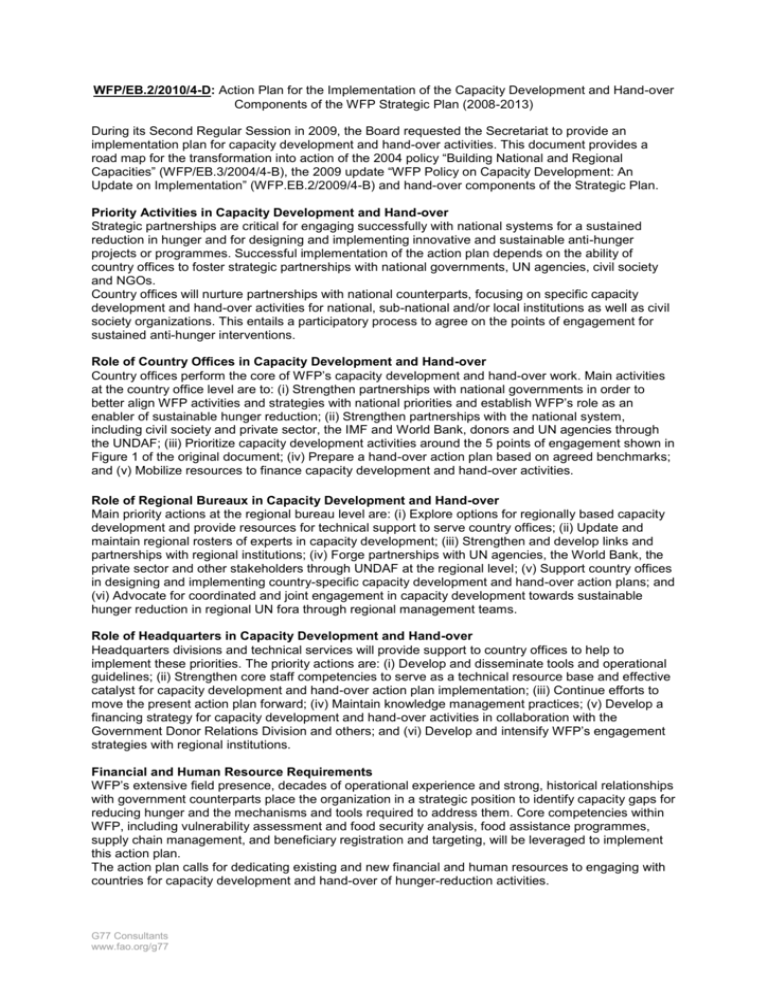
WFP/EB.2/2010/4-D: Action Plan for the Implementation of the Capacity Development and Hand-over Components of the WFP Strategic Plan (2008-2013) During its Second Regular Session in 2009, the Board requested the Secretariat to provide an implementation plan for capacity development and hand-over activities. This document provides a road map for the transformation into action of the 2004 policy “Building National and Regional Capacities” (WFP/EB.3/2004/4-B), the 2009 update “WFP Policy on Capacity Development: An Update on Implementation” (WFP.EB.2/2009/4-B) and hand-over components of the Strategic Plan. Priority Activities in Capacity Development and Hand-over Strategic partnerships are critical for engaging successfully with national systems for a sustained reduction in hunger and for designing and implementing innovative and sustainable anti-hunger projects or programmes. Successful implementation of the action plan depends on the ability of country offices to foster strategic partnerships with national governments, UN agencies, civil society and NGOs. Country offices will nurture partnerships with national counterparts, focusing on specific capacity development and hand-over activities for national, sub-national and/or local institutions as well as civil society organizations. This entails a participatory process to agree on the points of engagement for sustained anti-hunger interventions. Role of Country Offices in Capacity Development and Hand-over Country offices perform the core of WFP’s capacity development and hand-over work. Main activities at the country office level are to: (i) Strengthen partnerships with national governments in order to better align WFP activities and strategies with national priorities and establish WFP’s role as an enabler of sustainable hunger reduction; (ii) Strengthen partnerships with the national system, including civil society and private sector, the IMF and World Bank, donors and UN agencies through the UNDAF; (iii) Prioritize capacity development activities around the 5 points of engagement shown in Figure 1 of the original document; (iv) Prepare a hand-over action plan based on agreed benchmarks; and (v) Mobilize resources to finance capacity development and hand-over activities. Role of Regional Bureaux in Capacity Development and Hand-over Main priority actions at the regional bureau level are: (i) Explore options for regionally based capacity development and provide resources for technical support to serve country offices; (ii) Update and maintain regional rosters of experts in capacity development; (iii) Strengthen and develop links and partnerships with regional institutions; (iv) Forge partnerships with UN agencies, the World Bank, the private sector and other stakeholders through UNDAF at the regional level; (v) Support country offices in designing and implementing country-specific capacity development and hand-over action plans; and (vi) Advocate for coordinated and joint engagement in capacity development towards sustainable hunger reduction in regional UN fora through regional management teams. Role of Headquarters in Capacity Development and Hand-over Headquarters divisions and technical services will provide support to country offices to help to implement these priorities. The priority actions are: (i) Develop and disseminate tools and operational guidelines; (ii) Strengthen core staff competencies to serve as a technical resource base and effective catalyst for capacity development and hand-over action plan implementation; (iii) Continue efforts to move the present action plan forward; (iv) Maintain knowledge management practices; (v) Develop a financing strategy for capacity development and hand-over activities in collaboration with the Government Donor Relations Division and others; and (vi) Develop and intensify WFP’s engagement strategies with regional institutions. Financial and Human Resource Requirements WFP’s extensive field presence, decades of operational experience and strong, historical relationships with government counterparts place the organization in a strategic position to identify capacity gaps for reducing hunger and the mechanisms and tools required to address them. Core competencies within WFP, including vulnerability assessment and food security analysis, food assistance programmes, supply chain management, and beneficiary registration and targeting, will be leveraged to implement this action plan. The action plan calls for dedicating existing and new financial and human resources to engaging with countries for capacity development and hand-over of hunger-reduction activities. G77 Consultants www.fao.org/g77
